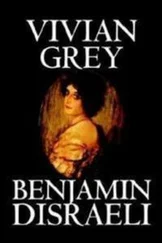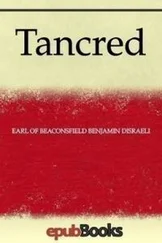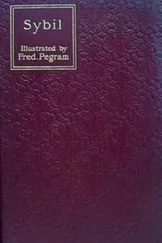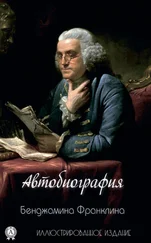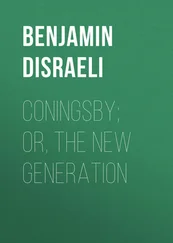Бенджамин Дизраэли - Coningsby
Здесь есть возможность читать онлайн «Бенджамин Дизраэли - Coningsby» весь текст электронной книги совершенно бесплатно (целиком полную версию без сокращений). В некоторых случаях можно слушать аудио, скачать через торрент в формате fb2 и присутствует краткое содержание. Год выпуска: 2014, Издательство: epubBooks Classics, Жанр: Классическая проза, на английском языке. Описание произведения, (предисловие) а так же отзывы посетителей доступны на портале библиотеки ЛибКат.
- Название:Coningsby
- Автор:
- Издательство:epubBooks Classics
- Жанр:
- Год:2014
- ISBN:нет данных
- Рейтинг книги:4 / 5. Голосов: 1
-
Избранное:Добавить в избранное
- Отзывы:
-
Ваша оценка:
- 80
- 1
- 2
- 3
- 4
- 5
Coningsby: краткое содержание, описание и аннотация
Предлагаем к чтению аннотацию, описание, краткое содержание или предисловие (зависит от того, что написал сам автор книги «Coningsby»). Если вы не нашли необходимую информацию о книге — напишите в комментариях, мы постараемся отыскать её.
Coningsby — читать онлайн бесплатно полную книгу (весь текст) целиком
Ниже представлен текст книги, разбитый по страницам. Система сохранения места последней прочитанной страницы, позволяет с удобством читать онлайн бесплатно книгу «Coningsby», без необходимости каждый раз заново искать на чём Вы остановились. Поставьте закладку, и сможете в любой момент перейти на страницу, на которой закончили чтение.
Интервал:
Закладка:
Mr. Rigby was member for one of Lord Monmouth's boroughs. He was the manager of Lord Monmouth's parliamentary influence, and the auditor of his vast estates. He was more; he was Lord Monmouth's companion when in England, his correspondent when abroad; hardly his counsellor, for Lord Monmouth never required advice; but Mr. Rigby could instruct him in matters of detail, which Mr. Rigby made amusing. Rigby was not a professional man; indeed, his origin, education, early pursuits, and studies, were equally obscure; but he had contrived in good time to squeeze himself into parliament, by means which no one could ever comprehend, and then set up to be a perfect man of business. The world took him at his word, for he was bold, acute, and voluble; with no thought, but a good deal of desultory information; and though destitute of all imagination and noble sentiment, was blessed with a vigorous, mendacious fancy, fruitful in small expedients, and never happier than when devising shifts for great men's scrapes.
They say that all of us have one chance in this life, and so it was with Rigby. After a struggle of many years, after a long series of the usual alternatives of small successes and small failures, after a few cleverish speeches and a good many cleverish pamphlets, with a considerable reputation, indeed, for pasquinades, most of which he never wrote, and articles in reviews to which it was whispered he had contributed, Rigby, who had already intrigued himself into a subordinate office, met with Lord Monmouth.
He was just the animal that Lord Monmouth wanted, for Lord Monmouth always looked upon human nature with the callous eye of a jockey. He surveyed Rigby; and he determined to buy him. He bought him; with his clear head, his indefatigable industry, his audacious tongue, and his ready and unscrupulous pen; with all his dates, all his lampoons; all his private memoirs, and all his political intrigues. It was a good purchase. Rigby became a great personage, and Lord Monmouth's man.
Mr. Rigby, who liked to be doing a great many things at the same time, and to astonish the Tadpoles and Tapers with his energetic versatility, determined to superintend the education of Coningsby. It was a relation which identified him with the noble house of his pupil, or, properly speaking, his charge: for Mr. Rigby affected rather the graceful dignity of the governor than the duties of a tutor. The boy was recalled from his homely, rural school, where he had been well grounded by a hard–working curate, and affectionately tended by the curate's unsophisticated wife. He was sent to a fashionable school preparatory to Eton, where he found about two hundred youths of noble families and connections, lodged in a magnificent villa, that had once been the retreat of a minister, superintended by a sycophantic Doctor of Divinity, already well beneficed, and not despairing of a bishopric by favouring the children of the great nobles. The doctor's lady, clothed in cashmeres, sometimes inquired after their health, and occasionally received a report as to their linen.
Mr. Rigby had a classical retreat, not distant from this establishment, which he esteemed a Tusculum. There, surrounded by his busts and books, he wrote his lampoons and articles; massacred a she liberal (it was thought that no one could lash a woman like Rigby), cut up a rising genius whose politics were different from his own, or scarified some unhappy wretch who had brought his claims before parliament, proving, by garbled extracts from official correspondence that no one could refer to, that the malcontent instead of being a victim, was, on the contrary, a defaulter. Tadpole and Taper would back Rigby for a 'slashing reply' against the field. Here, too, at the end of a busy week, he found it occasionally convenient to entertain a clever friend or two of equivocal reputation, with whom he had become acquainted in former days of equal brotherhood. No one was more faithful to his early friends than Mr. Rigby, particularly if they could write a squib.
It was in this refined retirement that Mr. Rigby found time enough, snatched from the toils of official life and parliamentary struggles, to compose a letter on the study of History, addressed to Coningsby. The style was as much like that of Lord Bolingbroke as if it had been written by the authors of the 'Rejected Addresses,' and it began, 'My dear young friend.' This polished composition, so full of good feeling and comprehensive views, and all in the best taste, was not published. It was only privately printed, and a few thousand copies were distributed among select personages as an especial favour and mark of high consideration. Each copy given away seemed to Rigby like a certificate of character; a property which, like all men of dubious repute, he thoroughly appreciated. Rigby intrigued very much that the headmaster of Eton should adopt his discourse as a class–book. For this purpose he dined with the Doctor, told him several anecdotes of the King, which intimated personal influence at Windsor; but the headmaster was inflexible, and so Mr. Rigby was obliged to be content with having his Letter on History canonized as a classic in the Preparatory Seminary, where the individual to whom it was addressed was a scholar.
This change in the life of Coningsby contributed to his happiness. The various characters which a large school exhibited interested a young mind whose active energies were beginning to stir. His previous acquirements made his studies light; and he was fond of sports, in which he was qualified to excel. He did not particularly like Mr. Rigby. There was something jarring and grating in that gentleman's voice and modes, from which the chords of the young heart shrank. He was not tender, though perhaps he wished to be; scarcely kind: but he was good–natured, at least to children. However, this connection was, on the whole, an agreeable one for Coningsby. He seemed suddenly to have friends: he never passed his holydays again at school. Mr. Rigby was so clever that he contrived always to quarter Coningsby on the father of one of his school–fellows, for Mr. Rigby knew all his school–fellows and all their fathers. Mr. Rigby also called to see him, not unfrequently would give him a dinner at the Star and Garter, or even have him up to town for a week to Whitehall. Compared with his former forlorn existence, these were happy days, when he was placed under the gallery as a member's son, or went to the play with the butler!
When Coningsby had attained his twelfth year, an order was received from Lord Monmouth, who was at Rome, that he should go at once to Eton. This was the first great epoch of his life. There never was a youth who entered into that wonderful little world with more eager zest than Coningsby. Nor was it marvellous.
That delicious plain, studded with every creation of graceful culture; hamlet and hall and grange; garden and grove and park; that castle–palace, grey with glorious ages; those antique spires, hoar with faith and wisdom, the chapel and the college; that river winding through the shady meads; the sunny glade and the solemn avenue; the room in the Dame's house where we first order our own breakfast and first feel we are free; the stirring multitude, the energetic groups, the individual mind that leads, conquers, controls; the emulation and the affection; the noble strife and the tender sentiment; the daring exploit and the dashing scrape; the passion that pervades our life, and breathes in everything, from the aspiring study to the inspiring sport: oh! what hereafter can spur the brain and touch the heart like this; can give us a world so deeply and variously interesting; a life so full of quick and bright excitement, passed in a scene so fair?
Chapter III.
Lord Monmouth, who detested popular tumults as much as he despised public opinion, had remained during the agitating year of 1831 in his luxurious retirement in Italy, contenting himself with opposing the Reform Bill by proxy. But when his correspondent, Mr. Rigby, had informed him, in the early part of the spring of 1832, of the probability of a change in the tactics of the Tory party, and that an opinion was becoming prevalent among their friends, that the great scheme must be defeated in detail rather than again withstood on principle, his Lordship, who was never wanting in energy when his own interests were concerned, immediately crossed the Alps, and travelled rapidly to England. He indulged a hope that the weight of his presence and the influence of his strong character, which was at once shrewd and courageous, might induce his friends to relinquish their half measure, a course to which his nature was repugnant. At all events, if they persisted in their intention, and the Bill went into committee, his presence was indispensable, for in that stage of a parliamentary proceeding proxies become ineffective.
Читать дальшеИнтервал:
Закладка:
Похожие книги на «Coningsby»
Представляем Вашему вниманию похожие книги на «Coningsby» списком для выбора. Мы отобрали схожую по названию и смыслу литературу в надежде предоставить читателям больше вариантов отыскать новые, интересные, ещё непрочитанные произведения.
Обсуждение, отзывы о книге «Coningsby» и просто собственные мнения читателей. Оставьте ваши комментарии, напишите, что Вы думаете о произведении, его смысле или главных героях. Укажите что конкретно понравилось, а что нет, и почему Вы так считаете.
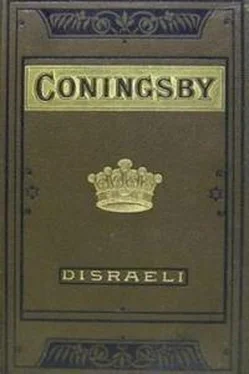
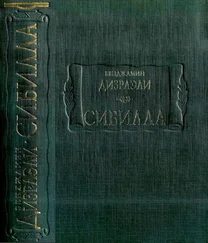
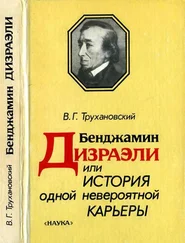
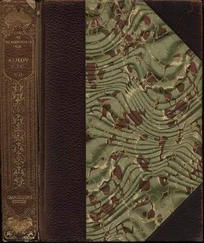

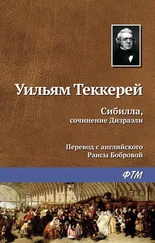
![Мелани Бенджамин - Госпожа отеля «Ритц» [litres]](/books/384861/melani-bendzhamin-gospozha-otelya-ritc-litres-thumb.webp)
